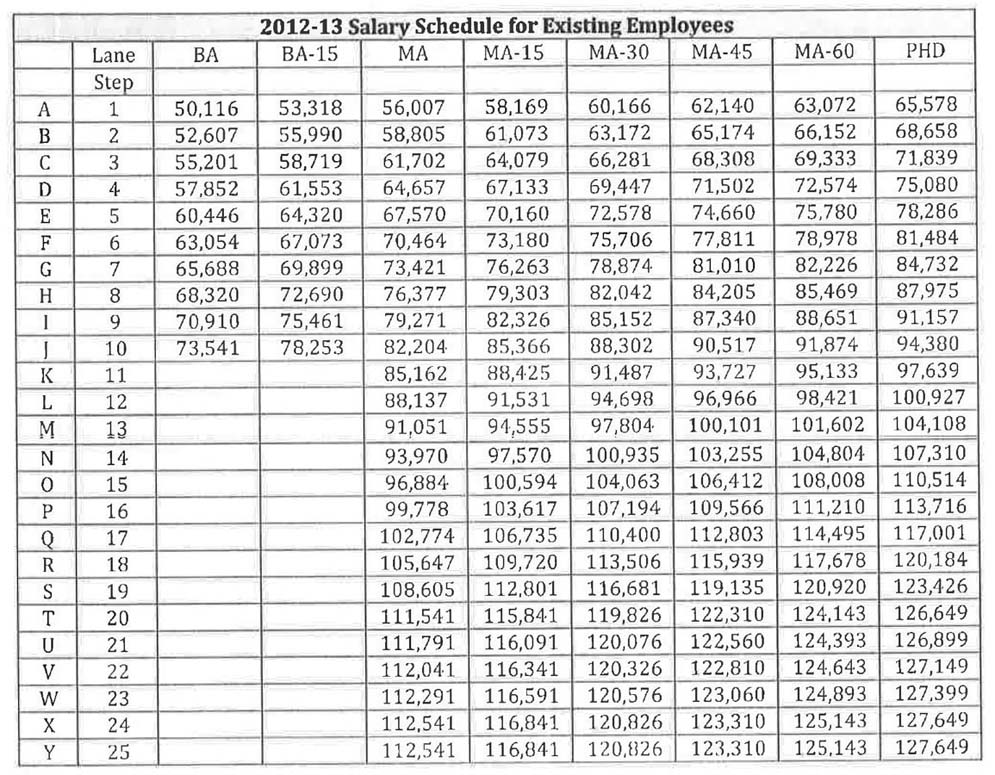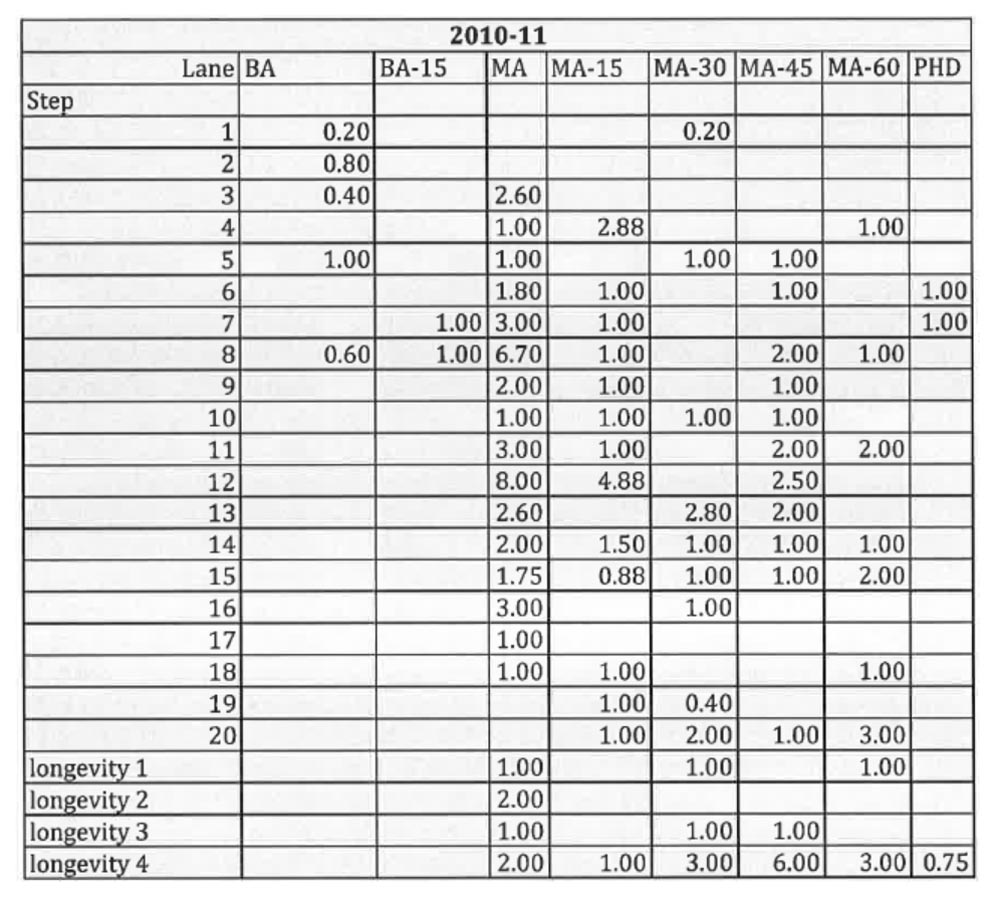
The teachers union and the
board are talking about a salary increase. On the day that the strike began, the
Chicago Tribune* published the two positions: The school board was offering
9.69% but the teachers union demanded 18.76%. That is the difference that
precipitated the strike**.
But this is a raise on top of a raise – did you know
that if the board and union agreed on ZERO PERCENT inflation adjustment, the teachers still get
raises? It’s true, they are just not called raises. They are called “steps”
instead. A step increase is simply a reward for seniority and it is automatic.
93 percent of the labor force is not unionized, so
this may seem strange. If we receive a cost-of-living adjustment we understand that it is not a merit raise. We also understand that
we are not entitled to that adjustment, that we are lucky if we get it and that
earned merit raises are the still best way to get ahead.
Alas, unions hate the performance evaluations that
merit raises require because they put discretion in the hands of management. The
union bosses would rather have the membership think of the union as the only
source of paycheck growth. Hence, the concept of seniority.
So it is just wrong to talk about the school board’s 9.69%
or the teachers union 18.76% as keeping ahead of inflation. The non-merit, automatic,
you-get-it-just-because-you-were–here-for-another-year paycheck adjustments are
programed steps that are specified in a table. The step increases more than keep up with
inflation.
To the extent that the 9.69 or 18.76 percent increase
exceeds the step increases, they might be thought of as merit
increases but again, not in the non-union sense. Since the union will not allow
management to evaluate the members’ individual performances, the merit raise is
applied to all members. And the “merit” is simply one more point of negotiation
and has nothing to do with performance.
To those of us in the 93 percent, the union
environment seems surprisingly arbitrary and needlessly adversarial. And the
ultimate absurdity is realized when the union members expect a merit raise
because they stopped all work.
The union members can also earn a raise by attaining
additional college degrees. Every teacher must have a bachelors degree. For
every year of seniority that a bachelor-only teacher gains, there is an
increased pay rate. These schedule inflation adjustments range from $50K in year
one to $74K in year ten. This is called the “bachelors lane”.
There is a masters lane. These scheduled inflation
adjustments range from $56K in year one to $113 in year twenty-four. There is
also a lane in between bachelor and master called the BA-15 lane.
There is a PhD lane with scheduled inflation
adjustments. There are four lanes between masters and PhD, each with scheduled
annual inflation adjustments.
This table shows the steps in rows and the lanes in
columns. For any individual, the years of accumulated seniority determine the
row and amount of post-graduate attainment determines the column. The cell at
the intersection of that row and column are the annual salary for that
individual.

And this table shows how many LFHS teachers fall in
each cell. I don’t know why they are not all integers – perhaps they relate to
partial years.

*According to the
Chicago Tribune on the first day of the strike, the school board’s offer was
2.6 and 3.4 and 3.4 percent increase in each of the next three years.
The math is 1.026 * 1.034 * 1.034 = 1.0969
or 9.7 percent
According to that same source the union was demanding
5.6 and 6.5 and 6.5 percent increase in each of the next three years.
The math is 1.056 * 1.065 * 1.056 = 1.1876
or 18.8 percent
**Other issues were the teacher contribution to health insurance, the "two tier"
idea that creates a second table of steps and lanes that applies to new-hires
only and contains more steps, and a provision to re-open the contract in the
event the state legislature changes the pension law. These three matters
bear directly and exclusively on teacher pay
only and have no impact on quality of teaching, curriculm, safety or any other
non-pay issue.
The teachers have been saying, and the students have been repeating, that the teachers had to strike LFHS to “stand up for what they believe in”. There was never an issue between the Board and the teachers’ union other than teacher pay and things that affect teacher pay. “Standing-up for what you believe in” sounds noble but it rhetorical sleight-of-hand. If we take them at their word, the only thing the LFHS teachers believe in is more pay for themselves.
http://lfhs.pxxq.com/lfhsBOARD.htm
back to LFHS.pxxq.COM